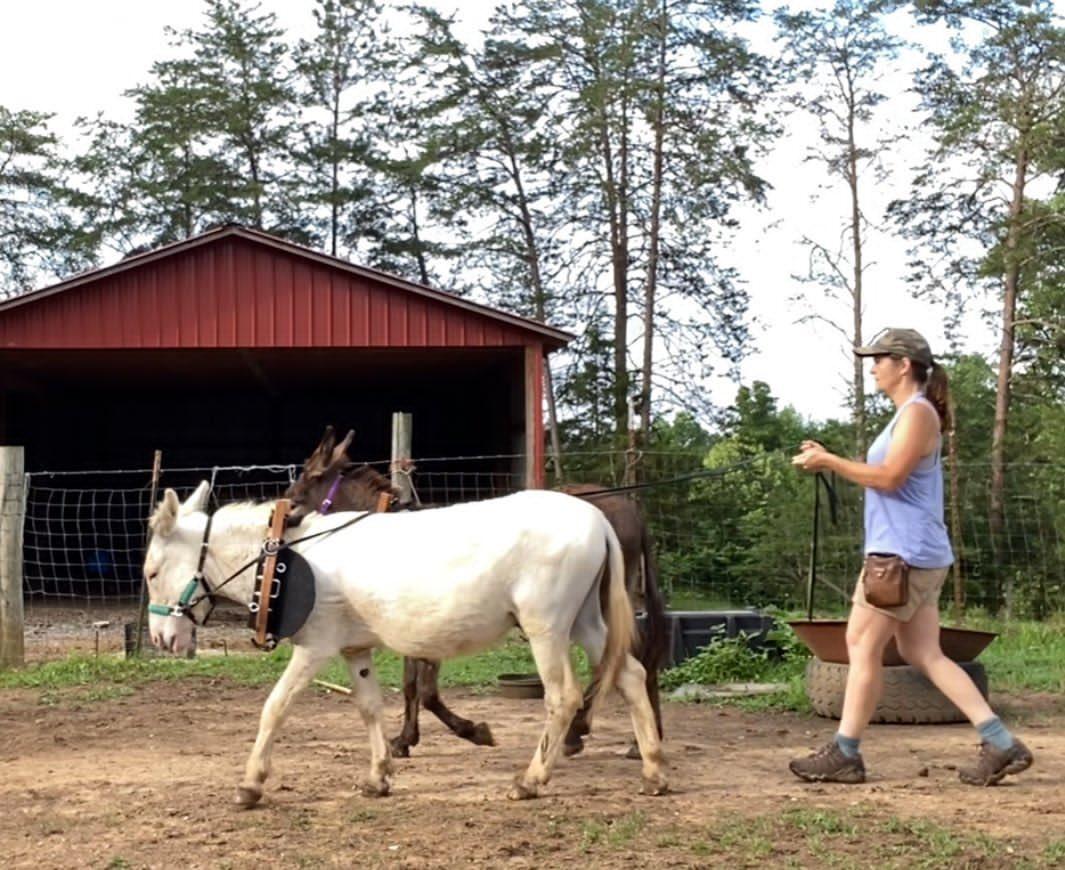It’s confirmed, and experts agree, donkeys are sassy little…
 's
's
(Keeping it kid friendly here.)
These adorable creatures are like toddlers with fur, and like to be treated as such. Though their attitudes more closely resemble a moody teen at times.
Keeping that in mind, each donkey must be treated as an individual in order to be trained properly. One size will not fit all with these exasperatingly stubborn creatures.
Are Donkeys Easy to Train?
Donkeys are incredibly smart animals. They earned their reputation for being stubborn because they assess every situation they are presented with, and will not do something they perceive as dangerous.
Because of their intelligence, the questions isn’t really if they are able to learn to do a task, rather whether they would be willing to do it. A large factor in how easy it will be to train a donkey, will be how much they trust their trainer.
Be consistent, make a plan, set small goals, and stick to a schedule.
Keep in mind that every moment with them is a training moment. Body language is vitally important during each interaction. Make sure to praise the donkey when they do what was asked of them. Positive reinforcement is excellent for establishing a bond.
Earning A Donkey’s Trust
Each donkey has a strong and unique personality. Therefor each one must be approached differently.
Donkeys need to be trained with patience and respect. They are very clever animals and don’t respond well to bullying. One can attempt to out stubborn them, but it will most likely be a losing battle.
Take Finnigan for example. He refused to be trained how to walk on a lead line. When vexation won out, and a little pulling was employed, he literally sat down. Incredibly hilarious as that may seem (and quite a delight to see) it is not ideal during a training session.

It’s important to bond with a donkey to be able to work with them more effectively. (They need Amy Fleming of Heartland type commitment.) Donkeys assess situations far more in depth than a horse will. If they don’t trust their leader, they will not follow them.
It’s best to take time to observe a donkey before beginning to attempt to train them. Donkey’s body language is much more subtle than a horses, and their cues can be hard to interpret.
How to Stop Bad Behavior
Punishing a donkey rarely works. It may actually cause them to worsen their behavior. Or, depending on their personality, they may just suffer through the punishment and yet continue on the same path of resistance.
Instead, when they aren’t behaving how they are supposed to, withdraw from them. Bonded donkeys will not want the loss of interaction, and it will make them more willing to cooperate for the returned attention.
When a donkey behaves negatively, try to withhold what they want. (Remember, they’re toddlers.) For example, if they kick or bite anything within reach in anticipation for their food at meal times, withhold their feed from them until they stop. Once they have calmed down, give them their feed as a positive reinforcement for ending their bad behavior.
Treats During Training
There are many opinions on the best way to reward a donkey when they do what has been asked of them. Some use treats, other use positive reinforcement.
Many trainers will vehemently advise against giving a donkey a treat for good behavior. They believe that if treats are used, the donkey will learn to only respond when there is a treat to be offered.
Whereas, when positive reinforcement is used, they are more likely to respond no matter the presence of a tasty smelling nugget. They recommend using rest periods, cheerful talk, scratching and petting.

Help for Difficult Donkeys
There are some donkeys, that no matter what is tried, still put up a fight. If help is needed, reach out to The Donkey Listener. Angelia offers a membership to teach people how to train donkeys with all kinds of personalities.

With the membership there is access to case studies on unmotivated donkeys, pushy and biting donkeys, severely abused and neglected donkeys, auctions donkeys, and much more.
She covers basic training all the way up to advanced skills. Positive reinforcement is a main focus.
As an added benefit, there are downloads for course guides and training examples. And who doesn’t like a discount for assessories for their beloved pets?
Consultations are even offered for some levels of membership.
Don’t let exasperation for these loveably ornery animals win out. Help is a click away.

